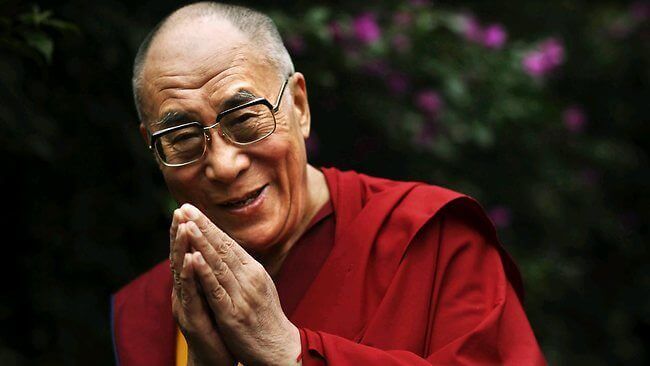The Dalai Lama is one of the most important religious figures in the world, he is the spiritual leader of the Gelug lineage of Tibetan Buddhism, this monk was chosen from an early age, when he was only 13 years old, to be the highest political and religious. authority in Tibet. Since then, he has dedicated himself to traveling the world, giving lectures, teaching others and trying to solve various social problems. On the subject of all this, did you know that the Dalai Lama also teaches business classes?
Yes, his teachings can also be applied in business, although it may seem strange. In fact, many of the Dalai Lama’s business lessons have helped a wide variety of people in recent years. Then we’ll look at three of his important lessons.
- For most people who want to start a business.
- Fear is one of their worst enemies; deep down.
- Many people don’t even set the ideas they have in mind.
- Energy to think about the possibility of failure.
One of the Dalai Lama’s most important business lessons is that the best antidote to fear is motivation, to avoid the negative effects of anxiety and avoidance, it is necessary to have clear goals and concrete goals that will help us persevere, even in the face of something. that scares us or worries us.
In his book The Art of Happiness, the Dalai Lama recommends focusing on the situation we want to achieve to overcome fear, so when starting a new business it is necessary to take into account the benefits it will bring us, once we have succeeded in getting it going.
Only in this way can we persevere in the face of the difficulties that will inevitably come before us.
No matter how good we are or how hard we work and sooner or later we will try problems and difficulties, it is at this time that the second of the Dalai Lama’s business lessons becomes very important:
“In the face of something we cannot solve, we must change our reality. ” – Dalai Lama-
As stoic philosophy said 2000 years ago, what happens to us is not so important; what matters is our interpretation, that is, the reflections we have on the situation, and while this can be applied in all areas of life, it is especially important in the business world.
For example, if after working a product we do not get good results from its sale, we have two options, the first is to throw in the towel, get angry with the world and drop the frustration in the background. this strategy will not work.
On the other hand, we can also choose to consider the event as an opportunity to learn, if we look at the difficulties in this way, we are much more likely to succeed in the long term.
In addition, we will also achieve greater emotional well-being in the present moment. We will not see each failure as an insurmountable failure, but as a learning opportunity.
The last of the Dalai Lama’s business lessons has to do with the concept of change we had before.
For many people change generates fear and anxiety, however, as with failures, it is impossible to prevent the circumstances of our life from changing, so it is much more useful to learn to take advantage of changes, or even to initiate them ourselves. .
According to the Dalai Lama, the happiest people are those who are not afraid to get it wrong and who always try new things and test the test therself, in the business world this can mean creating a new product, contacting potential customers or participating in networking events. The important thing is that we are able to create our own changes.
After all, the reality is that everything changes all the time, including ourselves and our projects, if we do not direct this change towards the best and try to avoid it, we will gradually get worse without realizing it. It is essential that we learn to take the lead and make ever more positive changes in all areas that matter to us.
As can be seen, although the Dalai Lama generally speaks of spirituality, happiness and religion, his teachings can also be applied within a company and in the world of work.
If we apply these ideas to our professional lives, we will find that some of our labor concerns will disappear. At the end of the day, what is a business but a form of personal development?

